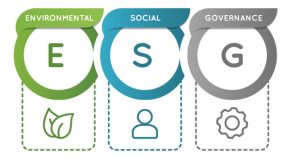 Michelle Connolly, the Co-Founder & Director of recruitment experts 300 North and a member of the IWFM Veterans in FM Committee answers our Q&A on the state of FM recruitment
Michelle Connolly, the Co-Founder & Director of recruitment experts 300 North and a member of the IWFM Veterans in FM Committee answers our Q&A on the state of FM recruitment
Q: What is the current recruitment picture in FM, are rumours of a recruitment shortage correct in your opinion?
A: Yes, the FM sector is experiencing a real talent shortage across the board, particularly at mid-management and technical specialist levels. While FM has always had its talent challenges, what we’re seeing now is a layered shortage across multiple areas, from technical engineering to client-facing roles and senior leadership positions. With the sector evolving rapidly and embracing digital solutions, sustainability practices, and more strategic roles, there’s a growing demand for a more sophisticated skill set.
Q: At which level is it most difficult to find the right people?
A: Engineers are particularly hard to attract and retain. Their decisions are often commercially driven and salary, overtime, van use, and package details are decisive. Employers are competing not just on job roles but on total offering. Project managers and site managers with strong technical experience, especially in healthcare or education environments, are in short supply.
Management roles including commercial managers, account directors, and operations directors are also proving difficult to fill. Within PFI, the expectation for stakeholder relationship skills paired with technical knowledge narrows the candidate pool further.
In specialist areas like fire safety, the demand for candidates with expertise in both passive and active fire protection, plus the ability to conduct compliant surveys and risk assessments, has risen sharply.
Q: What kind of candidates are employers most interested in seeing?
A: Relevant experience is the number one requirement, especially for project managers and technical leadership who have already delivered in similar settings and understand sector-specific constraints, like live environments in healthcare, education, or secure facilities. Qualifications, particularly in compliance-heavy roles such as engineering or fire safety, where technical certifications (chartered status, degree-level qualifications, fire safety accreditations etc) are essential. For more strategic FM positions, clients want people who understand the bigger picture and can translate it into service delivery excellence.
Q: How important are soft skills to employers and are you seeing candidates which fulfil these expectations?
A: Soft skills are critical and increasingly a deciding factor between equally qualified candidates. Employers want people who can communicate clearly with clients, stakeholders, and teams both verbally and in writing and who can manage pressure in high-stakes environments like hospitals, schools or retail. The ability to build strong relationships is paramount, especially on collaborative or long-term contracts like PFI where we continually get requests for resilient and people focused talent. Candidates who can demonstrate emotional intelligence, problem-solving ability, and time management is essential on reactive tasks or when overseeing complex project timelines. In fire safety roles especially, the importance of soft skills can’t be overstated. Lives depend on the ability to deliver compliant work, manage diverse stakeholders, and stay calm under pressure. While some candidates naturally shine in these areas, others struggle, especially when transitioning from purely technical or trade-focused backgrounds and where the softer skills may previously not have been as much a necessity.
Q: Are employers using AI tools to help identify the right candidates and do you see this as a positive or as something to approach carefully?
A: Yes, we’re seeing more employers exploring the use of AI to help to speed up the shortlisting process. However, FM is a people-driven industry where contract requirements, client environments, and team dynamics vary hugely. That means finding the right candidate isn’t just about keywords or qualifications, it’s about cultural fit, soft skills, and whether someone can thrive in a specific environment. This is where experienced recruiters add irreplaceable value. We know our networks, we understand the personalities, and we often have a long-standing view of a candidate’s career and performance across different contracts. AI may help narrow a list, but it can’t judge how someone will handle a high-pressure hospital site, lead a fire safety programme, or manage a demanding PFI client.
 Q: You’ve been involved in encouraging the recruitment of ex-services personnel to FM, what key qualities do you think they bring?
Q: You’ve been involved in encouraging the recruitment of ex-services personnel to FM, what key qualities do you think they bring?
A: Ex-military professionals bring structure, resilience, and a proactive mindset, often alongside technical training and leadership experience. Their ability to manage pressure, stay solutions focused, and work to tight protocols is a natural fit, particularly in engineering, critical environments, or PFI contracts. The challenge we have as an industry is creating awareness of FM, showcasing the breadth of career opportunities and positioning FM as a natural career choice for veterans and service leavers.
Q: How do you predict the FM job market will develop over the coming year?
A: We anticipate sustained demand for both technical and strategic FM roles. Areas like energy management, sustainability, and compliance (particularly around building safety and fire regulations) will keep growing. Employers will need to widen their search, invest more in training, and offer compelling packages to secure and retain top talent. Flexibility, development pathways, and workplace culture will all play a role because in a tight market, it’s not just about attracting talent, it’s about keeping it. Economic uncertainty, inflation, and upcoming regulatory changes could cause some employers to tread more cautiously.




